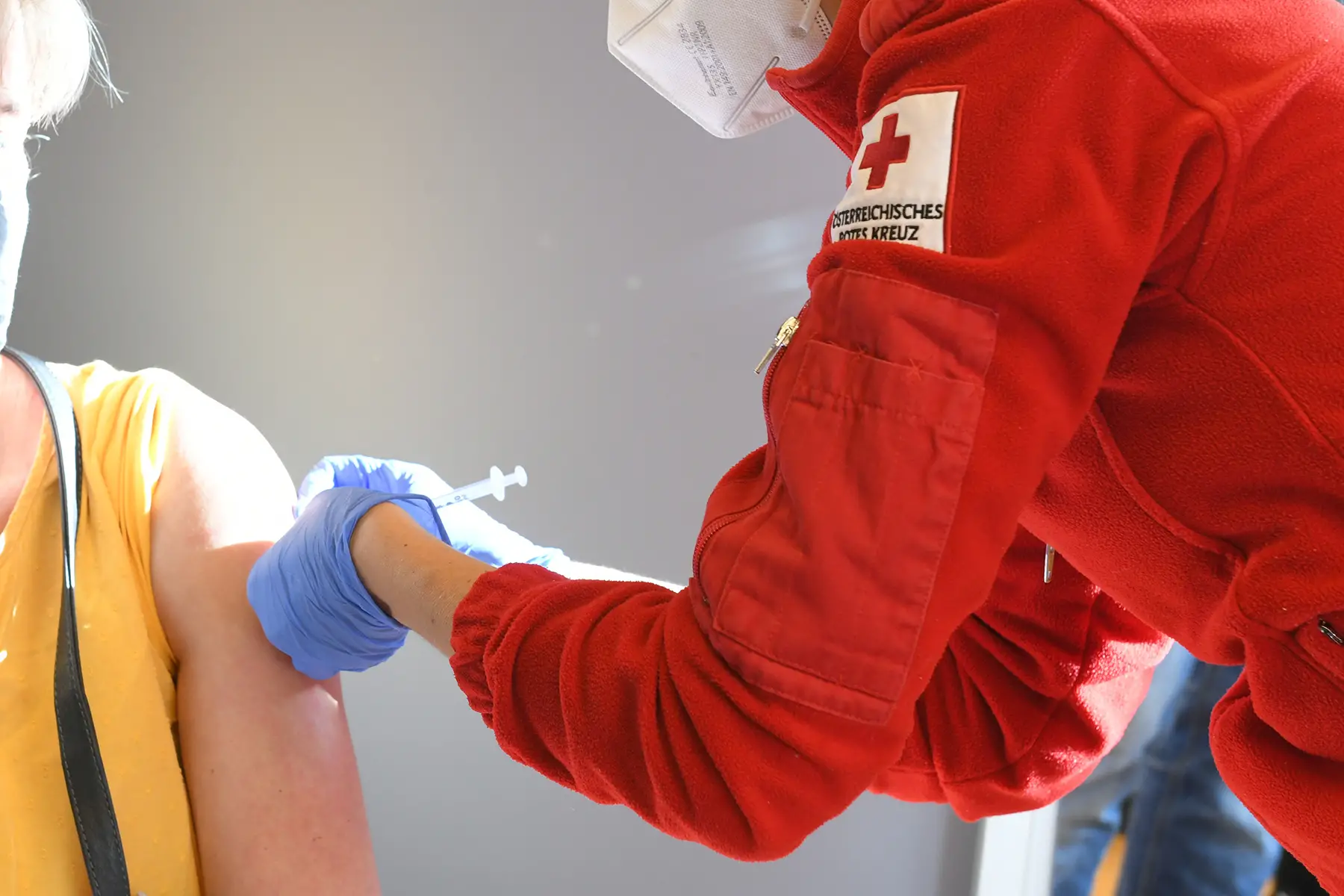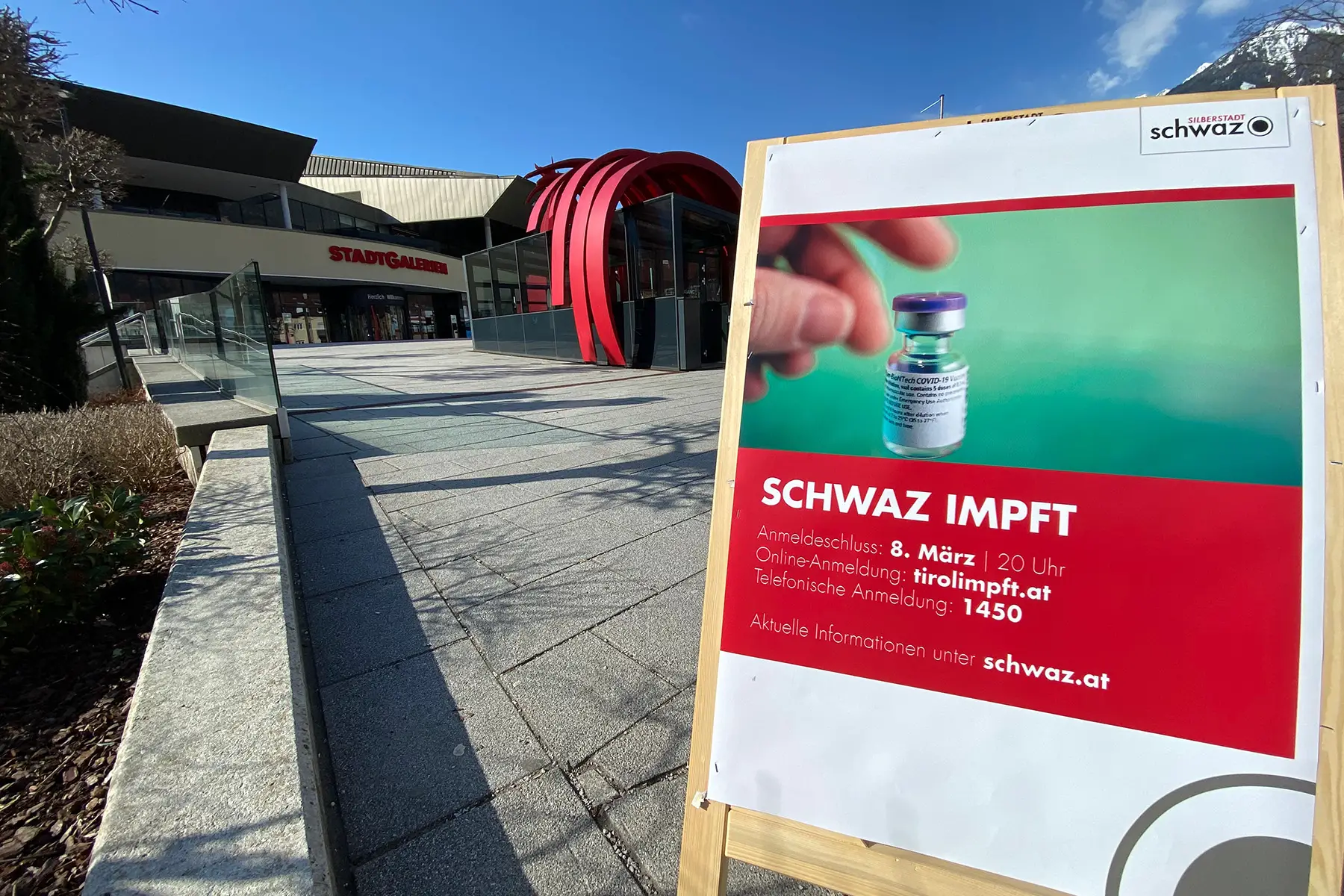Vaccinations are a key part of healthcare in Austria. Whether you’re looking to update your immune system, navigate school requirements, or prepare for travel, the country’s vaccination program is efficient, accessible, and designed to make protecting your health as easy as possible.
Here’s how it works and what you need to know to stay protected:
Cigna Global
Enjoy peace of mind while living in Austria with Cigna Global’s long-term international health insurance plans (12+ months). Get tailored coverage, direct billing with many providers, complex case management, and global care on demand, with access to a network of 1.5+ million doctors, specialists, and therapists.
The Austrian vaccination system
Vaccinations in Austria are voluntary. In other words, they’re not legally required. The country’s public healthcare system covers some immunizations for free. The Ministry of Social Affairs, Health, Care, and Consumer Protection (link in German) oversees Austria’s vaccination plan.
Standard vaccinations are free to children up to the age of 15, but other immunizations may come with fees. For instance, travel vaccinations or adult immunizations may incur charges. However, if you opt for private health insurance, some adult vaccinations may be included in your plan; but of course, this depends on your policy.

Your employer is responsible for signing you up for Austrian public health insurance, and you’ll be issued with an E-Card. Therefore, it’s easy to keep track of your claims, medications, and medical history – including vaccinations – as it’s all recorded on the card.
Insurance for vaccinations in Austria
Public health insurance generally covers anyone who works in Austria, as well as their immediate family. As with the vaccine program, public health insurance is overseen by the Ministry of Social Affairs, Health, Care and Consumer Protection. If you are an employed worker, you can access this healthcare by automatically paying a portion of your salary. In the meantime, healthcare is free for those who are unemployed or have low earnings.
However, public health insurance may not include travel vaccinations and other immunizations for free. Due to this, and a number of other reasons, many internationals living in Austria choose to take out private health insurance.
You have the choice between an Austrian private health insurance company and an international provider who caters specifically to expats. These providers are ideal for newcomers to Austria who want to avoid a coverage gap, those who travel outside the country a lot, and anyone who prefers expat-focused care:
However, before signing up for any policy, you should do your research as fees and coverage will vary. For more information, read our guide to getting private health insurance in Austria.
Vaccinations for children in Austria
Routine vaccinations for children are included in Austria’s Mutter-Kind-Pass. Pediatricians and general practitioners run this national preventative program, which is also free of charge up to the age of 15.
Children of working expats should be covered by public health insurance, as a result of your automatic enrolment via your employer.

As a result of vaccinations being voluntary, parents are able to choose which vaccines they wish their children to receive. In total, there are 12 free vaccines for children, which remain free until they reach 15-years-old. These include diphtheria, tetanus, hepatitis B, and the combined vaccine against measles, mumps, and rubella (MMR), for instance.
A GP, pediatrician, local health authority, or school doctor will carry out children’s immunizations. Hospitals, however, aren’t usually an option for standard vaccinations.
Vaccination schedule in Austria
In Austria, the routine vaccination schedule goes in this order:
- Rotavirus vaccine: 7 weeks old
- Pneumucoccal conjugate vaccine (PCV), Rotavirus and six-in-one combined vaccine for Diptheria, Tetanus, Pertussis, Poliomyelitis, Haemophilus Influenza B (HiB) and Hepatitis B: 3 months old
- PCV, Rotavirus and six-in-one vaccines: 5 months old
- Six-in-one vaccine: 11 to 12 months old
- Measles, Mumps and Rubella (MMR), six-in-one vaccine, and PCV vaccines: 12 months old
- MMR vaccine: 13 months old
- MMR vaccine: up to 6 years old
- Diptheria, Tetanus, Pertussis, Poliomyelitis vaccines: 6 to 9 years old
- MMR vaccine: 6 to 15 years old
- Hepatitis B booster vaccine: 8 to 15 years old
- Human Papilloma Virus (HPV) vaccine: 10 to 12 years old
- Meningococcal ACWY vaccine: 10 to 13 years old.
COVID-19 vaccination in Austria
COVID-19 vaccinations are available throughout Austria and are free as part of its public health insurance. Furthermore, you can find vaccination centers across the country.

For general coronavirus health information in Austria, you can consult our guide to the COVID-19 pandemic in Austria. You can find out about vaccination schedules, as well as the latest government restrictions
Vaccinations for special groups in Austria
Some groups of adults are recommended to get extra immunizations (link in German). These include, for instance, social care workers and those in the military. However, in addition to those on the standard vaccine plan:
- Standard vaccinations, including Diptheria, Tetanus, Pertussis, Poliomyelitis, Hepatitis B, chicken pox, MMR, influenza, HPV, Pneumococci, Herpes, Meningoencephalitis: social care workers, emergency service workers, the military, disaster relief workers, prison guards, funeral service workers, those who work with waste, sewage and cleaning, those who work in food and catering services, veterinarians, those who work in forestry, animal care and agriculture, those who work in piercing and tattoo studios, nail salons or provide foot care, sex workers, welders
- Hepatitis A vaccine: social care workers, medical and non-medical staff in refugee centres, emergency service workers, the military, disaster relief workers and prison guards, those who work with waste, sewage and cleaning, those who work in food and catering services, veterinarians, those who work in forestry, animal care and agriculture, sex workers
- Hepatitis B vaccine: social care workers, medical and non-medical staff in refugee centres, emergency service workers, the military, disaster relief workers and prison guards, those who work with waste, sewage and cleaning, those who work in food and catering services, veterinarians, those who work in forestry, animal care and agriculture, those who work in piercing and tattoo studios, nail salons or provide foot care, sex workers, welders
- Rabies vaccine: the military, disaster relief workers and prison guards, veterinarians, those who work in forestry, animal care and agriculture
- Meningococcal vaccine: medical and non-medical staff in refugee centers, the military, disaster relief workers, and prison guards
- Pneumococcus vaccine: welders.
Travel vaccinations in Austria
Travel vaccination requirements to enter Austria may be necessary, but this depends on your personal vaccination record. Therefore, to avoid being turned away at your departure point, be sure to do your research on vaccinations ahead of time.
You should always check you are up-to-date with certain vaccines before you travel. For instance, tetanus and polio vaccines may be necessary for certain destinations. In addition, recommended vaccines for traveling include:
- Chickenpox (varicella)
- Diptheria
- Tetanus
- Pertussis
- Flu (influenza)
- MMR
- Polio
- Shingles
- Typhoid
- Hepatitis A
- Hepatitis B
- Yellow fever
Further to this, there’s a recommendation that infants aged six to 11-months-old have one dose of MMR vaccine before travel.
Alternatively, if you’re planning to go to a wooded area on your trip, you should also consider a course of injections for tick-borne encephalitis, which is endemic.
In addition, the Centers for Disease Control and Prevention provides vaccination advice if you’re traveling to Austria from the United States.
Useful resources
- Federal Ministry of Health (link in German)
- Financial Market Authority – for private health insurance regulation





